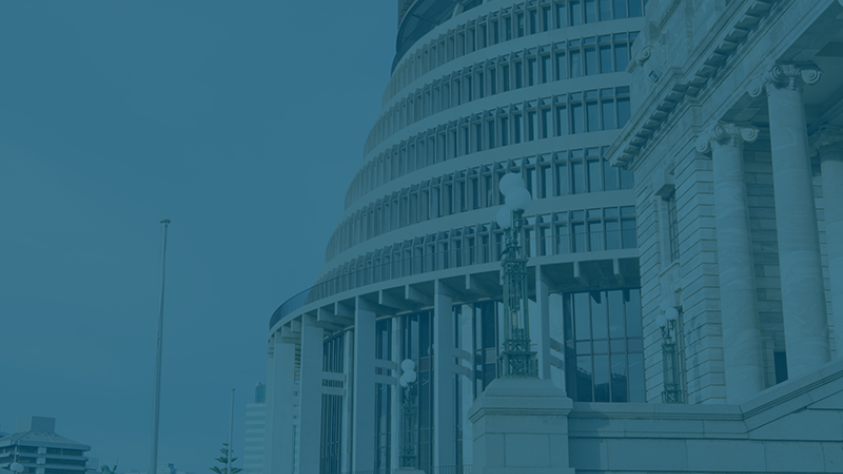Members of the Law Society’s Public Law Committee, which monitors and contributes to reform proposals in public law, met with the Independent Panel to provide feedback on a number of draft recommendations, including those relating to the design of electoral law, the use of entrenchment provisions, and emergency powers.
The Law Society agrees the current legislative framework is no longer fit for purpose, and requires an overhaul. A new legislative framework should be designed using modern terminology, and in such a way that the core fundamentals of elections are enshrined by Parliament in primary legislation.
“Too much delegation to executive bodies, or the granting of broad discretions, may affect perceptions of executive control over the legislative process,” says Public Law Committee convenor, Debra Angus.
The Law Society also addressed the Panel’s draft recommendation to entrench a number of additional provisions.
“Entrenchment should be confined to constitutional matters and serve a necessary constitutional purpose,” says Ms Angus. “It is legitimate where it is used to safeguard the integrity of representative democracy, but not where it is employed to protect contestable government policies. So it is important to explain why these additional provisions ought to be entrenched, and to identify any adverse effects of entrenching each of those provisions.”
The Law Society also raised concerns regarding the draft recommendation to allow Parliament to be reconvened after it has expired or dissolved, in the event of a catastrophic emergency or disaster.
This proposal presents a number of practical, procedural and legal difficulties. In the absence of very clear criteria for reviving a dissolved or expired Parliament, the difficulties arising from the proposal are disproportionate to the risks of continuing under the current arrangements.
For example, it may not be possible to recall retired members of Parliament who have taken up other roles, or moved overseas. The emergency or disaster which requires the election to be delayed may also impact on Parliament’s ability to meet. There would also be procedural issues such as whether members would need to be sworn in to take their seats, and whether a Speaker would need to be elected or re-elected.
It is also unclear what Parliament would do once it is reconvened, including whether bills would be reinstated and debated amidst a catastrophic emergency or disaster, and whether the House would adjourn to allow members to return to their affected electorates.
Reviving Parliament may also give the previous Government the opportunity to continue to advance its legislative programme, which would likely raise concerns about a lack of legitimacy in progressing or introducing new legislation. The ability to revive a previous Parliament could also act as a disincentive to holding an election as soon as possible.
“What is essentially required during the election and the government formation period is to ensure continuity,” says Ms Angus. “So it may be more appropriate to continue under the current arrangements, which allow an election to be delayed, and allow a caretaker Government to be in charge during the post-election period.”
We thank our Public Law Committee members for providing feedback on the Interim Report and draft recommendations. The Committee’s written feedback to the Panel is available here.
The Law Society is currently calling for applications to join its specialist committees, including the Public Law Committee. Committee membership is a great way to get involved and have your say on law reform issues. It is also excellent for professional development as well as collegiality and networking. Find more information about the Law Society’s law reform committees, and the application process, here.

